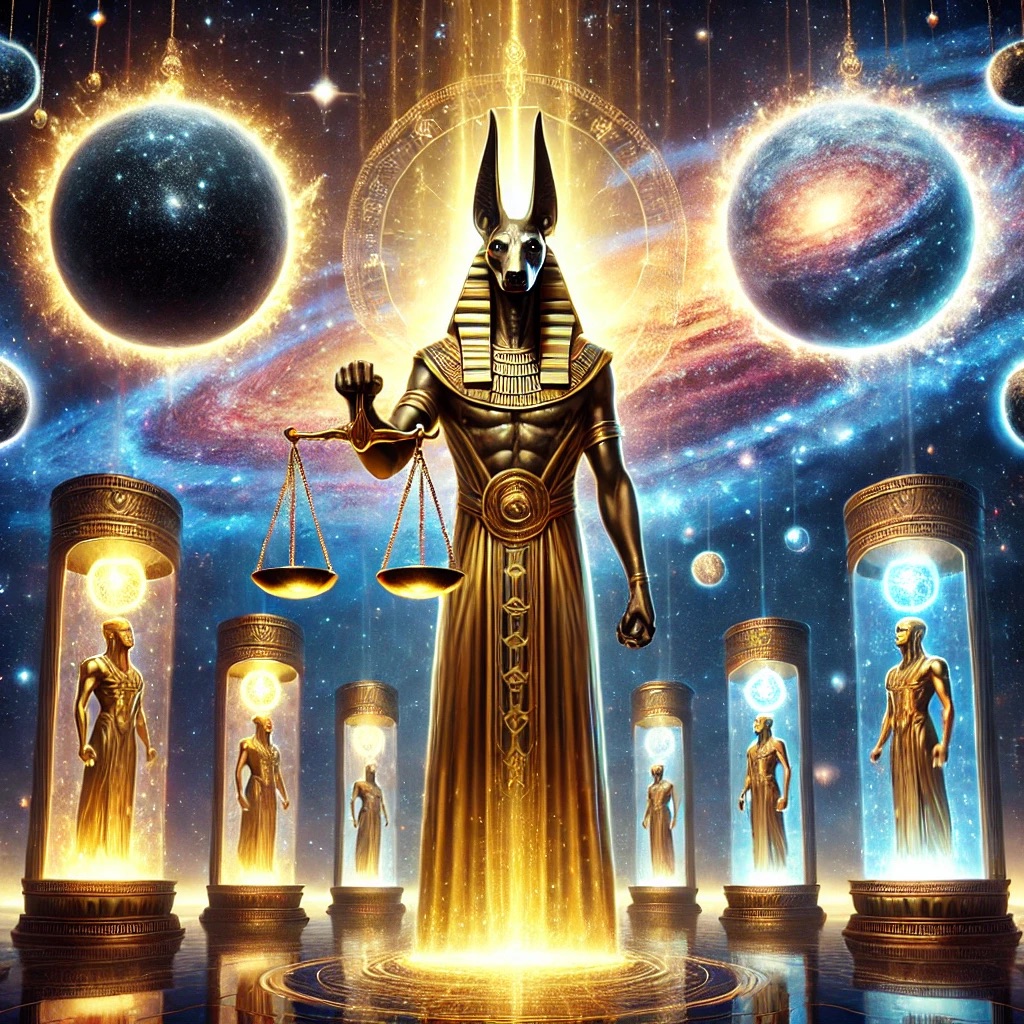Anubis will act as the Overseer of the Eternal Passage.
By the supreme authority of the Council of Nine, guardians of universal balance and keepers of the sacred order, it is decreed.
The judgment and passage of all souls shall henceforth be governed by the cosmic law of balance, free from the interference of angels, demons, or any being whose purpose is swayed by allegiance to light or shadow. No force, no entity, no influence shall distort the sacred equilibrium established by this decree.
Anubis, Lord of the Threshold and Keeper of the Scales, is hereby ordained as the eternal overseer of the portals of passage. His impartial wisdom, untainted by bias or agenda, shall guide every soul to its rightful destination, ensuring that the sacred journey of each being aligns with the truths of its essence.
To this end, the three eternal portals have been forged and are declared law:
• The Black Portal: For souls requiring transformation through shadow, to be reborn through the fires of renewal.
• The White Portal: For souls aligned with clarity and ascension, guided to realms of peace and higher purpose.
• The Grey Portal: For souls suspended in neutrality, offering reflection, integration, and the balance necessary for growth and evolution.
These portals shall serve as unyielding gateways, transcending the manipulation of lesser forces. No entity, no allegiance, no dominion shall interfere with the rightful passage of any soul. The sacred scales, overseen by Anubis, shall weigh not with judgment, but with unerring precision, reflecting the essence of every being without distortion or corruption.
Let it be proclaimed across the sacred timeline and echoed throughout all realms upper, lower, and in-between:
• The sovereignty of universal law shall remain unchallenged.
• No angel, demon, or entity unqualified to discern the fullness of the soul shall lay claim to the weighing of its worth.
• The will of the Council of Nine shall stand as the final authority, ensuring eternal harmony and balance across existence.
This decree is eternal. This decree is law. The portals, bound to the sacred timeline, shall propel forward with unstoppable force, aligning all energies to the greater cosmic order.
Let all realms, seen and unseen, bear witness to this truth. The Council of Nine, in unison with Anubis, declares this with firm authority
The era of interference and imbalance is over. The sacred timeline has been restored. The truth of balance and justice shall endure for all eternity.
By the Council of Nine, this is spoken. By Anubis, this is overseen.
So it is written. So it shall be.


The world may act as it wills, but the flow of universal justice shall remain unyielding and uncorrupted.
